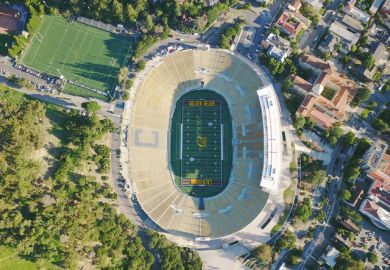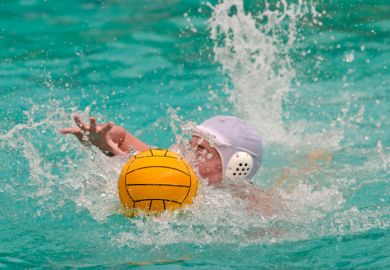A US federal appeals court overturned the convictions of two wealthy parents found guilty in the nation’s college admissions scandal, challenging the argument of government prosecutors that universities were unfairly deprived of their property.
The parents, John Wilson, a real estate investor, and Gamal Abdelaziz, a former casino executive, were convicted last October on charges related to paying hundreds of thousands of dollars in bribes to get their children accepted to elite universities by having the students pose as legitimate candidates for sports teams.
The three-judge federal appeals court in Boston – where their trials were held – unanimously agreed in a 154-page decision to set aside all verdicts in the two cases except for Mr Wilson’s conviction for filing a false tax return.
Attorneys for the two parents issued statements expressing gratitude for the reversals of what they considered unjustified criminal convictions. The Wilson attorney, Noel Francisco, said the decision reflects the fact that Mr Wilson’s children were qualified for admissions and that the universities involved in the cases received the benefits of the payments.
The head of the federal office that brought the criminal cases, US attorney Rachael Rollins, said that prosecutors are reviewing their options for any next steps in the matter.
A total of 57 people were charged, mostly parents, since the overall scandal became public in 2019. The cases centred on William Singer, a Los Angeles college admissions consultant who used numerous tactics – usually involving sports team coaches willing to vouch for applicants as realistic candidates to join their teams – as a way to help the privileged parents get their children admitted to elite universities.
Nearly all those charged in the cases pleaded guilty or were convicted, and given prison sentences of a few months. Mr Singer became a government informant early in the investigation of the case, to help trap his clients, and received a three-and-a-half year prison term. Mr Wilson was sentenced to 15 months while Mr Abdelaziz was given a one-year term. Neither of those two parents had been imprisoned pending their appeals.
Both Mr Wilson and Mr Abdelaziz sought to win admission for their children to the University of Southern California, the institution that by far had the most applicants involved in the nationwide scandal. Mr Wilson also was accused of paying at least $1 million (£800,000) to help his twin daughters gain entry to Harvard University and Stanford University.
Mr Wilson and Mr Abdelaziz were tried together, as some of the few parents willing to take their chances before a jury.
A former USC water polo coach, Jovan Vavic – who was accused of helping the children of both Mr Wilson and Mr Abdelaziz – also had his conviction overturned, leaving him to also face the possibility of a new trial.
In all three cases, the judges overturning the convictions made clear in statements they did not condone the overall behaviours. “We do not say the defendants’ conduct is at all desirable,” Circuit Judge Sandra Lynch wrote in the opinion covering Mr Wilson and Mr Abdelaziz.
Mr Francisco, the Wilson attorney, had argued that it made no legal sense for the government to portray USC as both the recipient of a bribe and a victim of it.
The appeals court agreed that prosecutors should not have argued that the universities in the case were cheated by their employees, and that the trial judge should not have told jurors that admission slots were the property of universities.
Register to continue
Why register?
- Registration is free and only takes a moment
- Once registered, you can read 3 articles a month
- Sign up for our newsletter
Subscribe
Or subscribe for unlimited access to:
- Unlimited access to news, views, insights & reviews
- Digital editions
- Digital access to THE’s university and college rankings analysis
Already registered or a current subscriber?







